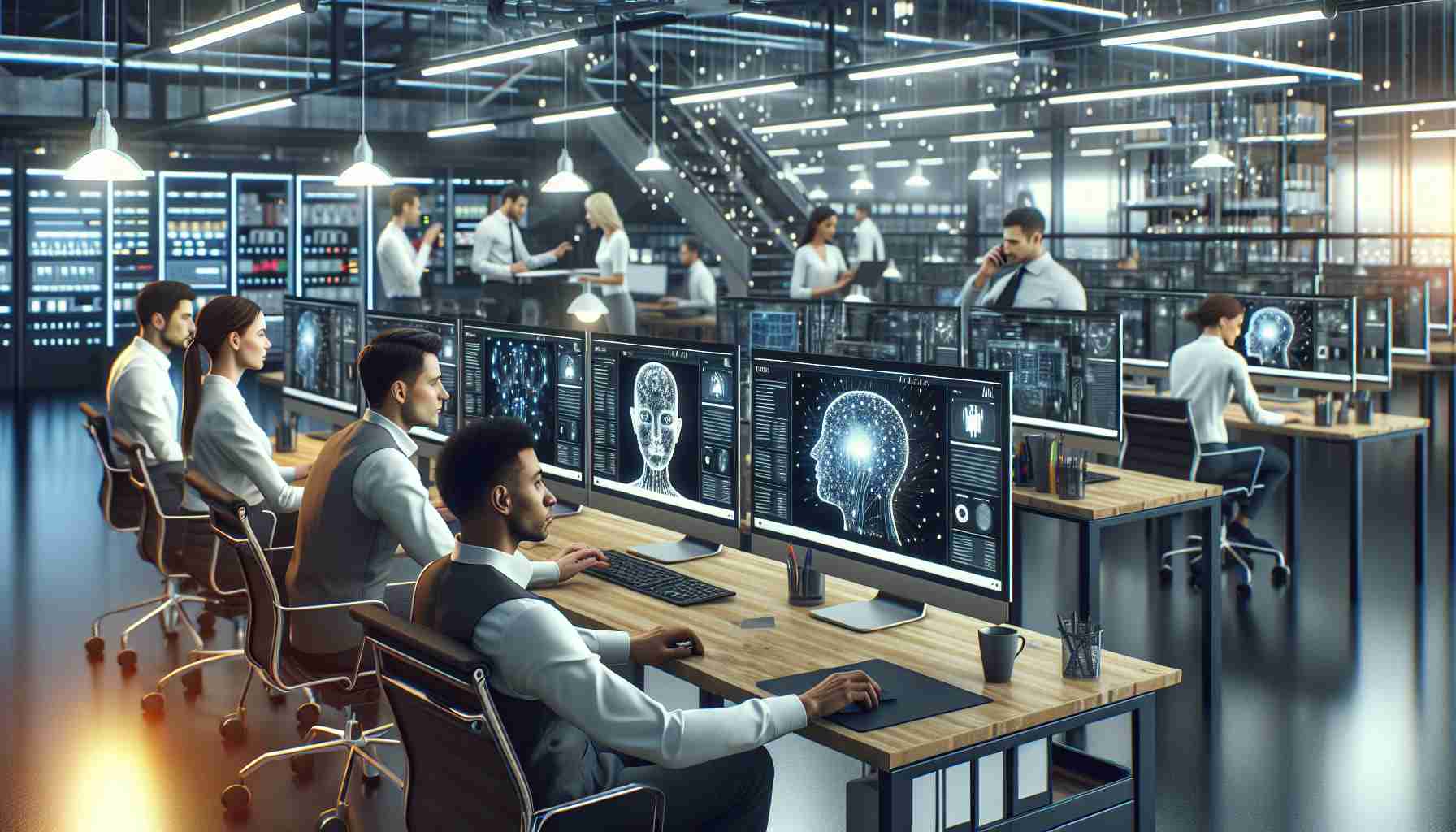Artificial Intelligence (AI) technology has been revolutionizing the workplace, with generative AI and chatbots taking center stage. These advanced technologies have the potential to answer questions much faster than managers and human resources (HR) personnel, resulting in reduced workloads and increased efficiency, according to several executives.
While there is a debate among companies about whether automation and the adoption of AI will guarantee productivity gains, one thing is clear: human expertise, empathy, soft skills, and critical reasoning are still crucial for maximizing the benefits of AI technology.
Microsoft has successfully implemented an HR chatbot that has saved the company over 21,000 hours of work in just one year. The chatbot handles simple HR questions, allowing HR team members to focus on more complex issues. The use of AI technology has led to increased productivity and improved self-service options for employees.
Global energy management giant Schneider Electric is also leveraging AI technology to streamline HR processes. Through a chatbot, employees can direct questions about leave allocation and other HR-related matters, receiving prompt and personalized responses. This connected experience enables employees to navigate policies and explore additional flexibility options easily.
In addition to HR, AI technology is making an impact in other areas of business. Private hospital operator Healthscope is using AI to optimize rostering, predicting attendance and ensuring the right personnel are scheduled at the right time. Insurance giant IAG has significantly expedited its claims handling processes, reducing assessment times and improving customer service.
The integration of AI technology in the workplace has not only increased productivity but also provided opportunities for upskilling and reskilling. For instance, IAG has trained its claims consultants to deliver empathy-based service and support customers facing personal trauma.
While the adoption of AI technology is happening cautiously in some organizations, the potential for transformative change is evident. AI has the ability to distill complex information, summarize lengthy reports, and provide quick answers to inquiries. It has the power to revolutionize the way businesses operate and improve efficiency across various domains.
As AI technology continues to evolve, companies will need to strike a balance between automation and human interaction. By harnessing the power of AI and leveraging human expertise, organizations can unlock higher levels of productivity, efficiency, and customer satisfaction in the workplace.
FAQ Section:
Q: How can AI technology revolutionize the workplace?
A: AI technology, such as generative AI and chatbots, can answer questions faster than human managers and HR personnel, reducing workloads and increasing efficiency.
Q: What role do human expertise and soft skills play in maximizing the benefits of AI technology?
A: Human expertise, empathy, soft skills, and critical reasoning are crucial for maximizing the benefits of AI technology.
Q: How has Microsoft implemented AI in HR processes?
A: Microsoft has implemented an HR chatbot that handles simple HR questions, saving the company over 21,000 hours of work. This allows HR team members to focus on more complex issues.
Q: How is Schneider Electric using AI technology in HR processes?
A: Schneider Electric is using a chatbot to streamline HR processes, providing prompt and personalized responses to employee questions about leave allocation and other HR matters.
Q: In which areas of business is AI technology making an impact?
A: AI technology is making an impact in HR, rostering optimization, claims handling processes, and customer service.
Q: How has AI technology provided opportunities for upskilling and reskilling?
A: Companies like IAG have trained their employees to deliver empathetic service and support customers facing personal trauma, utilizing the capabilities of AI technology.
Q: What benefits does AI technology bring to businesses?
A: AI technology can distill complex information, summarize reports, and provide quick answers to inquiries, revolutionizing business operations and improving efficiency.
Key Terms/Jargon:
– Artificial Intelligence (AI): Technology that enables machines to perform tasks that would typically require human intelligence.
– Generative AI: AI system that can generate new content or responses, such as text, images, or videos.
– Chatbots: AI-powered automated systems designed to interact and communicate with users through text or voice conversations.
– HR: Human resources, the department responsible for managing employees’ needs within an organization.
– Productivity gains: Improvements in productivity, usually measured by increased output or reduced effort.
– Soft skills: Non-technical skills that relate to a person’s ability to work well with others, such as communication, empathy, and critical thinking.
– Rostering: Creating work schedules or allocating shifts to employees based on their availability and skill set.
– Claims handling: The process of managing insurance claims, including assessing, processing, and resolving claims made by policyholders.
Related Links:
– Microsoft
– Schneider Electric
– Healthscope
– IAG
The source of the article is from the blog yanoticias.es

